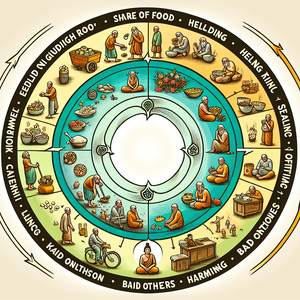The Untold Stories of Emergency Medicine Physician Assistants

The life of an emergency medicine PA is anything but predictable, as each day presents a diverse array of cases ranging from minor injuries to life-threatening emergencies. PAs are trained to assess, diagnose, and treat patients under the supervision of attending physicians, often managing substantial workloads in fast-paced environments. For instance, a PA may begin their shift by triaging patients, rapidly determining the severity of their conditions. This process requires not only clinical knowledge but also the ability to make quick decisions. According to a recent study, PAs working in emergency departments can independently manage up to 60% of patient cases. This autonomy allows physicians to focus on more complex cases, ultimately improving departmental efficiency and patient outcomes. The unpredictability of the job means that every shift can present new challenges. PAs must be adaptable and prepared for anything, from a simple laceration to a cardiac arrest. This dynamic nature of emergency medicine keeps PAs on their toes and ensures that no two days are alike.
Heroic Moments and Difficult Decisions
Emergency medicine PAs often find themselves on the front lines of patient care, facing situations that demand not only medical expertise but also emotional resilience. Their stories are filled with moments of heroism that may go unnoticed by the public. Consider the case of a PA who, during a particularly chaotic night shift, was the first to respond to a multi-vehicle accident. With multiple casualties, they quickly assessed injuries, prioritized care, and initiated life-saving procedures before the trauma team arrived. This scenario is not unique; PAs frequently operate in high-pressure situations where rapid assessment and intervention can mean the difference between life and death. Such situations highlight the extraordinary pressures PAs face daily. They must remain calm under duress while making critical decisions that can significantly impact patient outcomes. The emotional toll of these experiences is profound, with many PAs experiencing compassion fatigue—an emotional exhaustion stemming from the chronic stress of witnessing trauma and suffering. This aspect of their work deserves attention, underscoring the need for mental health support within the profession.
Teamwork: The Backbone of Emergency Medicine
Collaboration is at the heart of effective emergency medicine. PAs work closely with physicians, nurses, and other healthcare professionals to provide seamless patient care. Their ability to communicate effectively and function as part of a cohesive team is essential in high-pressure situations. One PA recounts a particularly challenging case involving a patient in cardiac arrest. The teamwork displayed during the resuscitation efforts was remarkable; each member of the team had a specific role, and the PA's ability to lead certain aspects of the procedure proved crucial. This collaborative approach not only enhances patient outcomes but also fosters a supportive work environment where PAs feel valued for their contributions. Moreover, the interprofessional relationships that PAs cultivate with their colleagues are vital to the success of emergency departments. They bring a unique perspective to patient care, often advocating for patients and ensuring that their voices are heard within the medical team.
The Emotional Toll: A Call for Support
While the stories of heroism and teamwork are inspiring, it is essential to recognize the emotional toll that such high-stakes work can take on PAs. Many struggle with the weight of their responsibilities, often feeling the pressure to perform flawlessly in life-or-death situations. The lack of recognition for their contributions can exacerbate feelings of isolation and burnout. Healthcare organizations must prioritize mental health resources for PAs, ensuring they have access to counseling and support groups. Providing platforms for PAs to share their experiences and challenges can foster a sense of community and understanding. By addressing the emotional challenges faced by these professionals, we can promote their well-being and, in turn, improve the quality of care they provide.
The contributions of emergency medicine physician assistants are invaluable yet often go unnoticed. Their untold stories reveal a world filled with challenges, heroism, and emotional resilience. By shedding light on their experiences, we not only honor their dedication but also recognize the importance of supporting these professionals in their demanding roles. As the landscape of healthcare continues to evolve, it is crucial to acknowledge and celebrate the vital role that PAs play in emergency medicine, ensuring that their stories are heard and valued. Their commitment to patient care deserves recognition and support, paving the way for a healthier future for both the providers and the patients they serve.
Emergency Medicine Physician Assistant
HCA Healthcare, Tenet Healthcare, local community hospitals
Core Responsibilities
Perform initial patient assessments and triage in high-stress environments.
Administer treatments, conduct diagnostic tests, and assist in emergency procedures.
Collaborate with physicians and nurses to create effective care plans for patients.
Required Skills
Strong clinical assessment skills and the ability to make rapid decisions.
Effective communication and teamwork abilities in crisis settings.
Certification as a Physician Assistant and ACLS (Advanced Cardiovascular Life Support) certification.
Trauma Surgery Physician Assistant
Johns Hopkins Hospital, University of California San Francisco Medical Center
Core Responsibilities
Assist trauma surgeons in the operating room and during patient rounds.
Conduct pre-operative evaluations and post-operative follow-ups for trauma patients.
Participate in trauma resuscitation efforts and manage critically injured patients in the ICU.
Required Skills
In-depth knowledge of surgical procedures and trauma care protocols.
Experience in acute care settings and proficiency in suturing and wound care.
Certification by the National Commission on Certification of Physician Assistants (NCCPA).
Critical Care Physician Assistant
Mayo Clinic, Cleveland Clinic
Core Responsibilities
Provide care for patients in the Intensive Care Unit (ICU) and manage complex medical conditions.
Monitor patients' vital signs and adjust treatment plans based on their condition.
Collaborate with interdisciplinary teams to ensure comprehensive care.
Required Skills
Strong background in pharmacology and critical care management.
Exceptional analytical skills to interpret complex data and make timely interventions.
Certification in Basic Life Support (BLS) and Advanced Cardiac Life Support (ACLS).
Emergency Department Nurse Practitioner
Kaiser Permanente, Ascension Health
Core Responsibilities
Conduct comprehensive health assessments and perform diagnostic tests in emergency settings.
Order and interpret lab results, develop treatment plans, and provide patient education.
Lead emergency response teams during high-acuity cases and ensure protocol adherence.
Required Skills
Advanced nursing skills with a focus on emergency medicine.
Strong decision-making and crisis management abilities.
Master’s degree in nursing and certification as a Nurse Practitioner in acute care.
Emergency Medicine Medical Director
Envision Healthcare, TeamHealth
Core Responsibilities
Oversee clinical operations in the emergency department, ensuring high-quality patient care.
Develop protocols and guidelines in collaboration with medical staff and administration.
Mentor and train emergency medicine staff, including PAs and NPs.
Required Skills
Extensive experience in emergency medicine and leadership roles.
Strong knowledge of healthcare regulations and accreditation standards.
Board certification in Emergency Medicine and a proven track record in clinical management.


